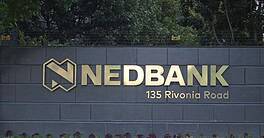Shariah-compliant finance is growing in Turkey, and Ankara is planning new rules to help guide the market.
Turkish regulatory authorities are expected to agree soon on new rules regarding Islamic finance. Once approved by parliament, “participation banking,” as Islamic finance is known in Turkey, is expected to spur growth in the sector.
Turkey’s ruling AK party has prioritized two initiatives for Istanbul as a prospective global financial hub: rebuilding parts of an already functioning infrastructure, and shifting Istanbul’s financial services to focus on Islamic finance. Mehmet Ali Akben, president of Turkey’s Banking and Regulatory Supervision Agency (BDDK), says a comprehensive draft law on regulations aimed at the interest-free finance sector is ready and that it addresses all issues of Islamic finance products. He says he hopes the law will pass shortly.
“We expect newcomers both from the private sector and the public sector to enter the Islamic banking sector in the upcoming period,” Akben told a gathering of the Turkish Islamic Banks’ Association earlier this year.
Despite current rules blamed for holding back development of Islamic financing products and services in Turkey, the nation’s participation banks are recording good growth. In the first half of 2017, the handful of Islamic banks in Turkey recorded net profit of TRL769 million ($223 million), a rise of 36% from the first half of 2016. Their total assets were up 8%, to $42 billion.
Melikah Utku, chairman of the Participation Banks’ Association of Turkey (PBAT), believes Islamic banking is in a significant development phase with substantial potential in Turkey. Utku is also the CEO of Albaraka Turk, one of Turkey’s leading participation banks.
The acceleration in Islamic banking adoption has been aided by incentives such as state-guaranteed loans for non-financial companies, tax cuts and relaxed banking provisions. Turkish authorities, keen to develop Islamic banking at a faster rate, are encouraging the establishment of new participation banks. The recent opening of two state-owned participation banks—Ziraat Katilim and Vakif Katilim—promoted Islamic finance further. Halkbank, another government conventional bank, is also expected to begin its own Islamic operation.
Despite the enthusiasm within banking circles, some officials caution that it will take time for the fledgling Islamic finance sector to prove itself and attract foreign direct investment, following last year’s coup attempt and larger geopolitical uncertainties. “When taking FDI decisions, international investors take the long-term view,” Arda Ermut, president of Turkey’s official Investment Support and Promotion Agency, said earlier this year. “There is often a lag between decisions being made and investment on the ground.”
Utku says that participation banks aim to increase their share of total banking sector assets in Turkey to 15% in 2025 from the current level of around 5%, but that they cannot do this alone; infrastructure and regulatory changes are required. Agencies such as the Capital Markets Board, the Istanbul Stock Exchange and investment agencies must act collectively on legislation, infrastructure, products and communication to establish Istanbul as an international financial center. “Based on the assumption that all these things will be realized, we set a target of 15% [of total banking sector assets by 2025],” he says. “We remain hopeful. There might be some delays in the dates, but we see this potential.”
Halit Yankkaya of the department of economics at Gebze Technical University in Turkey argues that there are specific issues holding back Turkish Islamic banks. Among them: widely differing practices in shariah governance; limited product variety due to heavy reliance on murabaha-style finance (a two-step interest-free financing structure similar to rent-to-own); public perception that Islamic banks aren’t always shariah-compliant; and inefficiency.
To address these issues, Turkish authorities are pushing to establish a nationwide advisory board for Islamic banking, set up a shariah governance framework for those banks, increase instrument variety and improve education. Regulatory and advisory entities will be established under government institutions such as the Banking Regulation and Supervision Agency and the Capital Markets Board. It is likely an advisory board will be formed under the PBAT. Given the fact that there is currently no formal shariah governance system in Turkey, the need for such a framework is high.
Ikram Gökta, general manager of bank Vakif Katilim, is another senior figure in Turkey’s Islamic banking sector who says the introduction of additional shariah framework will be beneficial to the growth of the sector.
“We see that there is a lot of demand for [Islamic banking services] both from commercial companies and from individuals,” Gökta says. “Work on the upper advisory body within the Union of Participation Banks continues. We will establish the standards and framework of independent committee bodies.”
Gökta adds that participation banking is one of the most important pillars of the Istanbul Financial Center Project, one that can help make Istanbul an Islamic financial hub. However, new products are needed for Turkey to take advantage of this opportunity.
Infrastructure projects can be aided by the development of Islamic financing, but are currently hampered by the technical issues surrounding Islamic products in Turkey, particularly product variants. The Upper Advisory Board was tasked with developing these products. There are 15 to 20 kinds of sukuk bonds, but due to legislative restrictions, Turkey’s participation banks can offer only a few currently.
To expand the range of interest-free instruments, Turkey is also preparing to introduce Islamic insurance into the financial system. Deputy prime minister Mehmet imek says work has started to bring Islamic insurance into the market, and the treasury has reached the last stage of its legislative work. Eight insurance companies are now offering participation products in Turkey. The appetite of many domestic and foreign investors for Islamic insurance is increasing, imek says. “We expect Islamic insurance to increase its market share in the upcoming period,” he adds. “We target the share of Islamic insurance to be 10% by 2023.”
Regulatory, legal and accounting environments are key areas of development for Turkey’s Islamic banking. The government’s support efforts, such as treasury sukuk issuance and new regulations that allow for more shariah-compliant instruments, will be beneficial for growth.
Turkey is aiming to introduce more Islamic financial instruments to a market where 90% of the population is Muslim but Islamic banking represents only 5% of banking assets, and tying this in with the development of the Istanbul Finance Center



